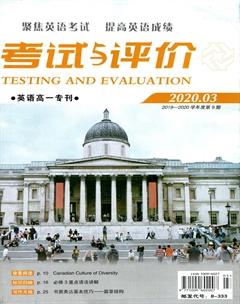與tea相關的短語
立新
與tea相關的短語具有特殊意義,既可以表示人物喜好、感情、性格,又可以表示夸張的修辭方法、休息時間、飲食習慣等。
1. 表示喜好
my cup of tea指“對某人胃口的東西,使某人感興趣的東西”。
I love Charles Dickens' novels, while other novels are not my cup of tea. 我愛看查爾斯·狄更斯的小說,對其它小說不感興趣。
Football is not his cup of tea. 足球可不是他的愛好。
2. 表示感情
tea and sympathy指“對不幸者的安慰與同情”。
At the time she just wants tea and sympathy. 那時候她只是尋求安慰而已。
3. 表示性格
a tea hound指“(迷于某事的人)愛交際的男子”。
John is a tea hound, so he must appear in the party this evening. 約翰是愛交際的花花公子,他一定會出現在今晚的晚會上。
4. 表示夸張
a storm in a tea cup 指“大驚小怪,小題大做”。美式英語常寫成a tempest in a tea cup(暴風雨)。
The students regard all the measures taken by the school authorities to prevent cheating during exams as nothing but a storm in a tea cup. 學生認為校方為防止考試時作弊所采取的措施是小題大做。
The couple's quarrel is just a tempest in a teapot. Tomorrow they will have forgotten about it. 小兩口的吵架不過是小題大做而已,明天他們就會徹底忘記這事的。
5. 與休息相關
tea break指“茶休”。
英國人認為飲茶是一種悠閑和舒適的享受,他們每天工作、學習一段時間后,喜歡休息一刻鐘,喝杯茶,吃些點心,補充體力。這段時間叫作茶休。英國人習慣于三餐兩茶,每天都要享受茶休。茶休包括兩種:1) morning tea 上午茶,一般在上午十點半左右;2) afternoon tea 下午茶,一般在下午四點鐘左右。
6. 與飲食有關
high tea得名源于茶是放在飯廳的高桌上,又叫meat tea,比較正式,一般在下午5點到6點之間進行,準備有肉類、土豆、面包、餡餅、奶酪、蔬菜等正餐享用的食物。
low tea得名源于人們在起居室的矮桌上享用茶,特指過去英國上流階層在下午四點享用的下午茶。現在,人們通常把下午四點鐘喝的茶都稱作low tea。
7. 相關俚語
as useful as a chocolate teapot 中看不中用
go for one's tea 去參加可能喪命的戰斗
take tea with somebody 與某人打交道

